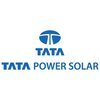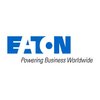Filter interviews by
GMR Energy Field Engineer Interview Questions and Answers
GMR Energy Field Engineer Interview Experiences
1 interview found

(4 Questions)
- Q1. Which typee of dosing in Boiler Drum ?
- Ans.
There are two main types of dosing in Boiler Drum: continuous dosing and intermittent dosing.
Continuous dosing involves adding chemicals continuously to maintain a desired level of treatment in the boiler water.
Intermittent dosing involves adding chemicals at specific intervals to prevent scale and corrosion buildup.
Examples of chemicals used for dosing in Boiler Drum include oxygen scavengers, pH adjusters, and scale ...
- Q2. What is types of Blow down?
- Ans.
Types of blow down include intermittent blow down and continuous blow down.
Intermittent blow down involves manual opening of a valve to release boiler water periodically.
Continuous blow down involves a continuous flow of water from the boiler to remove impurities.
Blow down helps maintain boiler efficiency and prevent build-up of harmful substances.
Examples of impurities removed during blow down include dissolved solids...
- Q3. What's process to reduce of Fomming in Drum?
- Ans.
To reduce foaming in a drum, the process involves adjusting temperature, using anti-foaming agents, controlling agitation, and ensuring proper filling levels.
Adjust temperature to reduce foam formation
Use anti-foaming agents to break down foam
Control agitation to prevent excessive foam buildup
Ensure proper filling levels to avoid overflow and foam creation
- Q4. What is reason for APH sutbolwing?
Top trending discussions






Interview questions from similar companies

I appeared for an interview before Nov 2016.
Interview Questionnaire
3 Questions
- Q1. About yourself
- Q2. Will you work at any location
- Ans.
Yes, I am willing to work at any location for the Senior Engineer position.
I am open to relocating for the right opportunity
I have experience working in different locations
I am flexible and adaptable to new environments
- Q3. Why you think you can work in any adverse situation
- Ans.
I have a proven track record of staying calm and focused in challenging situations, allowing me to problem-solve effectively.
I have experience working in high-pressure environments and have successfully delivered projects on time despite obstacles.
I am adaptable and can quickly assess a situation to determine the best course of action.
I have strong problem-solving skills and can think creatively to find solutions in ad...
Interview Preparation Tips
Duration: 1 hour
Total Questions: 100
Round: Group Discussion
Duration: 20 minutes

Interview Questionnaire
1 Question
- Q1. Normal question about personality and job related
Interview Preparation Tips
Experience: Interview was going smoothly & all questions was related my job so it's was easy for me.
Tips: Good knowledge about of wind turbine
Duration: 2 hours
Total Questions: 25
Round: HR Interview
Experience: Interview was completed so easy
Tips: Required nice personality and confidence is must required

I appeared for an interview in Mar 2025, where I was asked the following questions.
- Q1. What is working principle of transformer
- Ans.
A transformer operates on electromagnetic induction to transfer electrical energy between circuits at different voltage levels.
Consists of primary and secondary coils wound around a magnetic core.
Works on the principle of Faraday's law of electromagnetic induction.
When alternating current flows through the primary coil, it creates a magnetic field.
This magnetic field induces a voltage in the secondary coil.
Transformers...
- Q2. What's efficiency of transformer
- Ans.
The efficiency of a transformer measures how effectively it converts input power to output power, typically expressed as a percentage.
Efficiency is calculated as (Output Power / Input Power) x 100%.
Typical transformer efficiencies range from 95% to 99%.
Higher efficiency reduces energy losses, making transformers more economical.
Example: A transformer with 98% efficiency means 98% of input power is converted to output p...
- Q3. Types of generating power plants
- Ans.
Power plants generate electricity using various energy sources, including fossil fuels, nuclear, and renewables.
Thermal Power Plants: Use fossil fuels like coal, oil, or natural gas (e.g., coal-fired plants).
Nuclear Power Plants: Generate electricity through nuclear fission (e.g., plants using uranium).
Hydroelectric Power Plants: Utilize flowing water to generate power (e.g., Hoover Dam).
Wind Power Plants: Harness wind...
- Q4. What is hybrid system
- Ans.
A hybrid system combines different technologies or methodologies to leverage their strengths for improved performance and flexibility.
Hybrid systems can integrate both analog and digital components, such as in hybrid cars that use both electric and gasoline engines.
In computing, hybrid systems may refer to cloud computing models that combine public and private clouds for enhanced scalability and security.
In control sys...
- Q5. Types of transformer
- Ans.
Transformers are electrical devices that transfer energy between circuits through electromagnetic induction, with various types for different applications.
Step-up Transformer: Increases voltage, used in power transmission.
Step-down Transformer: Decreases voltage, used in power distribution.
Isolation Transformer: Provides electrical isolation, used in sensitive equipment.
Auto Transformer: Has a single winding, used for ...
- Q6. What's central inverter
- Ans.
A central inverter converts DC electricity from solar panels into AC electricity for grid use or consumption.
Central inverters are commonly used in large-scale solar power plants.
They are more efficient for larger installations compared to string inverters.
Examples include the SMA Sunny Central and ABB PVS series.
Central inverters typically require more space and are installed in dedicated areas.
They can manage multipl...

Discuss work related questions
(1 Question)
- Q1. Salary discuss and other accommodation
Interview Preparation Tips

I applied via Referral and was interviewed in Apr 2022. There were 2 interview rounds.
(1 Question)
- Q1. Powertrain technical questions
(1 Question)
- Q1. Compensation and benefits

I applied via Recruitment Consulltant and was interviewed in Mar 2022. There was 1 interview round.
(1 Question)
- Q1. First your communication skill then your experience in your feild , and general questions, confidence level and your attitude
Interview Preparation Tips

I applied via Referral and was interviewed before Nov 2023. There were 2 interview rounds.
(2 Questions)
- Q1. About my academic
- Q2. About salary & family background
(2 Questions)
- Q1. About college project
- Q2. Some discussion on college studies
Interview Preparation Tips

Senior Engineer Interview Questions & Answers
Suzlon Groupposted on 25 Dec 2024
I applied via Walk-in and was interviewed before Dec 2023. There was 1 interview round.
(22 Questions)
- Q1. Can you provide an introduction about yourself?
- Ans.
Experienced Senior Engineer with a strong background in software development and project management.
Over 10 years of experience in designing and implementing complex software solutions
Proficient in multiple programming languages such as Java, Python, and C++
Led cross-functional teams to successfully deliver projects on time and within budget
Strong problem-solving skills and ability to adapt to new technologies quickly
- Q2. Can you provide details about your work experience?
- Ans.
I have over 10 years of experience in designing and implementing complex engineering solutions.
Designed and implemented various engineering solutions for different projects
Led a team of engineers to successfully complete a major project ahead of schedule
Collaborated with cross-functional teams to ensure project success
Utilized advanced engineering tools and techniques to optimize project outcomes
- Q3. What do you know about Doubly Fed Induction Generators?
- Ans.
Doubly Fed Induction Generators (DFIGs) are commonly used in wind turbines to allow variable speed operation and improve efficiency.
DFIGs have two sets of windings - one on the stator and one on the rotor
The rotor windings are fed with variable frequency AC power through slip rings and brushes
DFIGs allow for control of both active and reactive power output
They are more efficient than fixed speed induction generators
DFI...
- Q4. What is the importance of circuit diagrams in electrical engineering?
- Ans.
Circuit diagrams are essential in electrical engineering for visualizing and understanding complex circuits.
Circuit diagrams provide a visual representation of the connections and components in a circuit.
They help engineers analyze and troubleshoot circuits more efficiently.
Circuit diagrams aid in the design and construction of electrical systems.
They are crucial for documenting and communicating circuit designs to oth...
- Q5. What is the procedure for reading a wiring diagram?
- Ans.
Reading a wiring diagram involves understanding symbols, following the flow of current, and identifying components.
Start by familiarizing yourself with the symbols used in the diagram.
Follow the flow of current from the power source to the components.
Identify the different components and their connections based on the diagram.
Pay attention to the color codes and labels for wires and components.
Refer to the legend or ke...
- Q6. What is an IGBT, how does it work, and what is the importance of diode capacitors in its functionality?
- Ans.
IGBT stands for Insulated Gate Bipolar Transistor, a semiconductor device used for switching applications in power electronics.
IGBT is a type of power semiconductor device that combines the high efficiency of a MOSFET with the high current and low saturation voltage capability of a bipolar transistor.
It consists of three terminals: gate, collector, and emitter.
IGBT works by controlling the flow of current between the c...
- Q7. Can you provide training to your team?
- Ans.
Yes, I have experience providing training to my team.
I have conducted training sessions on new technologies and tools for my team.
I have created training materials such as presentations, manuals, and hands-on exercises.
I have mentored junior team members to help them improve their skills.
I have received positive feedback from team members on the effectiveness of my training sessions.
- Q8. What are your computer skills?
- Ans.
Proficient in various programming languages and software tools, with experience in database management and system administration.
Proficient in programming languages such as Java, Python, and C++
Experience with database management systems like MySQL and MongoDB
Skilled in system administration tasks including network configuration and troubleshooting
Familiar with software tools such as Git, Jenkins, and Docker
- Q9. How frequently are you able to climb towers as part of your job requirements?
- Ans.
I climb towers as part of my job requirements on a regular basis.
I climb towers for routine maintenance checks
I climb towers to install or repair equipment
I climb towers to conduct inspections or surveys
On average, I climb towers at least once a month
- Q10. What is your understanding of the balance of plant (BOP)?
- Ans.
BOP refers to the systems and equipment outside of the main power generating unit in a power plant.
BOP includes components like transformers, switchgear, cooling systems, and fuel systems.
It is essential for the overall functioning of the power plant.
BOP is responsible for supporting the main power generation unit and ensuring its efficient operation.
Examples of BOP components are water treatment systems, piping, and c...
- Q11. What are SCADA (Supervisory Control and Data Acquisition) systems and PLC (Programmable Logic Controllers)?
- Ans.
SCADA systems are used to monitor and control industrial processes, while PLCs are programmable devices used to automate machinery and processes.
SCADA systems gather and analyze real-time data from sensors and equipment in industrial settings.
SCADA systems allow operators to remotely monitor and control processes, alarms, and events.
PLCs are programmable devices used to automate machinery and processes based on input f...
- Q12. Can you create a controlling circuit diagram based on my specifications?
- Ans.
Yes, I can create a controlling circuit diagram based on your specifications.
I will need detailed specifications including input/output requirements, components to be used, and any specific constraints.
I will create a schematic diagram using software like Eagle, Altium, or KiCad.
I will ensure the circuit meets safety standards and is optimized for performance.
I will provide documentation including a bill of materials a...
- Q13. What is the difference between synchronous and asynchronous generators?
- Ans.
Synchronous generators produce electricity at a constant frequency, while asynchronous generators do not require synchronization with the grid frequency.
Synchronous generators are connected to the grid and produce electricity at a fixed frequency, typically 50 or 60 Hz.
Asynchronous generators do not need to be synchronized with the grid frequency and can operate at variable speeds.
Synchronous generators are commonly us...
- Q14. What is the Standard Operating Procedure (SOP)?
- Ans.
SOP is a set of step-by-step instructions compiled by an organization to help workers carry out routine operations.
SOP is a detailed document that outlines the procedures and processes to be followed in specific situations.
It ensures consistency and quality in the performance of tasks.
SOPs are used in various industries such as healthcare, manufacturing, and IT.
Examples include a SOP for handling customer complaints in...
- Q15. Are you familiar with DGR, MGR, or YGR?
- Ans.
DGR, MGR, and YGR are commonly used acronyms in the engineering field.
DGR stands for Design Gross Rating, which is the maximum allowable weight for a designed structure.
MGR stands for Maximum Gross Rating, which is the maximum weight a vehicle can carry including its own weight.
YGR could refer to Yield Gross Rating, but context is needed to determine its specific meaning.
- Q16. Are you knowledgeable about Mean Time Between Failures (MTBF) and Mean Time To Repair (MTTR)?
- Ans.
Yes, I am knowledgeable about MTBF and MTTR in the context of engineering.
MTBF refers to the average time between failures of a system or component.
MTTR is the average time it takes to repair a failed system or component.
Both metrics are important in assessing the reliability and maintenance needs of engineering systems.
For example, a server may have an MTBF of 10,000 hours and an MTTR of 2 hours.
- Q17. What is more important for system reliability, Mean Time Between Failures (MTBF) or Mean Time to Repair (MTTR)?
- Ans.
MTTR is more important for system reliability as it directly impacts downtime and overall system availability.
MTTR directly impacts downtime and system availability
MTBF is important for predicting failures but does not address how quickly the system can be restored
Focusing on reducing MTTR can lead to improved system reliability and performance
- Q18. What is the function of a Doubly-Fed Induction Generator (DFIG) when used with an asynchronous generator?
- Ans.
DFIG controls the active and reactive power independently, improving efficiency and stability in wind turbines.
DFIG allows for variable speed operation, improving efficiency in wind turbines.
It controls the active and reactive power independently, enhancing stability.
DFIG can provide grid support by injecting or absorbing reactive power as needed.
It is commonly used in wind turbines to improve power quality and grid in...
- Q19. What is slip in a generator?
- Ans.
Slip in a generator refers to the difference between synchronous speed and actual rotor speed.
Slip is necessary for the generation of electrical power in a generator.
It is calculated as (Synchronous speed - Actual speed) / Synchronous speed.
Slip is typically expressed as a percentage.
Higher slip values indicate lower efficiency in the generator.
For example, in an induction generator, slip is essential for inducing curr...
- Q20. What can you explain about sub-synchronous, synchronous, and super-synchronous speeds?
- Ans.
Sub-synchronous, synchronous, and super-synchronous speeds refer to different speeds at which a rotating machine can operate in relation to the system frequency.
Sub-synchronous speed: When the machine speed is less than the synchronous speed, typically caused by a mechanical fault or system resonance.
Synchronous speed: When the machine speed matches the system frequency, commonly seen in normal operating conditions.
Sup...
- Q21. Importance of hub system, Nacelle system in wind turbine ?
- Ans.
Hub system and Nacelle system are crucial components in a wind turbine for efficient energy generation.
The hub system connects the blades to the main shaft of the turbine, allowing for rotation and energy generation.
The Nacelle system houses the gearbox, generator, and other key components necessary for converting wind energy into electricity.
Proper maintenance and monitoring of these systems are essential for optimal ...
- Q22. About documentation

I appeared for an interview before Jul 2024, where I was asked the following questions.
- Q1. What are the different types of gears?
- Ans.
Gears are mechanical components that transmit motion and torque between machine parts, with various types serving different functions.
Spur Gears: Straight teeth, used in simple machines like clocks.
Helical Gears: Angled teeth for smoother operation, found in car transmissions.
Bevel Gears: Cone-shaped, used to change the axis of rotation, like in hand drills.
Worm Gears: Screw-like, provide high torque reduction, used in...
- Q2. What are the different types of pumps?
- Ans.
Pumps are mechanical devices used to move fluids, and they come in various types based on their design and application.
Centrifugal Pumps: Use rotational energy to move fluids; commonly used in water supply systems.
Positive Displacement Pumps: Move fluid by trapping a fixed amount and forcing it into the discharge; examples include gear pumps and diaphragm pumps.
Submersible Pumps: Designed to be submerged in fluid; ofte...
- Q3. How does a fluid coupling work?
- Ans.
A fluid coupling transmits power between two shafts using hydraulic fluid, allowing for smooth acceleration and torque transfer.
Consists of two impellers and a housing filled with hydraulic fluid.
When the engine drives one impeller, it creates a flow of fluid that drives the second impeller.
Allows for smooth engagement and disengagement, reducing shock loads on the drivetrain.
Commonly used in automatic transmissions an...
- Q4. What are the different types of bearings and their potential failures?
- Ans.
Bearings are crucial components in machinery, with various types and potential failure modes impacting performance.
1. Ball Bearings: Commonly used in electric motors; potential failure due to wear, misalignment, or contamination.
2. Roller Bearings: Used in heavy machinery; can fail from excessive load, leading to brinelling or skidding.
3. Thrust Bearings: Support axial loads; failure can occur from inadequate lubricati...
GMR Energy Interview FAQs
Tell us how to improve this page.
GMR Energy Interviews By Designations
- GMR Energy Associate Manager Interview Questions
- GMR Energy Assistant Manager Interview Questions
- GMR Energy Circle Incharge Interview Questions
- GMR Energy Management Trainee Interview Questions
- GMR Energy Field Engineer Interview Questions
- GMR Energy Communication Manager Interview Questions
- GMR Energy Manager Mechanical Maintenance Interview Questions
- GMR Energy Associate Engineer Interview Questions
- Show more
Interview Questions for Popular Designations
Overall Interview Experience Rating
based on 1 interview experience
Interview Questions from Similar Companies
GMR Energy Field Engineer Reviews and Ratings
based on 2 reviews
Rating in categories
|
Associate Manager
126
salaries
| ₹8.2 L/yr - ₹14 L/yr |
|
Junior Manager
105
salaries
| ₹4 L/yr - ₹9 L/yr |
|
Manager
53
salaries
| ₹9.5 L/yr - ₹20.9 L/yr |
|
Associate General Manager
24
salaries
| ₹17 L/yr - ₹43 L/yr |
|
Manager Civil
10
salaries
| ₹10.5 L/yr - ₹22.5 L/yr |

Suzlon Group

Adani Power

Adani Group

Torrent Power
- Home >
- Interviews >
- GMR Energy Interview Questions











